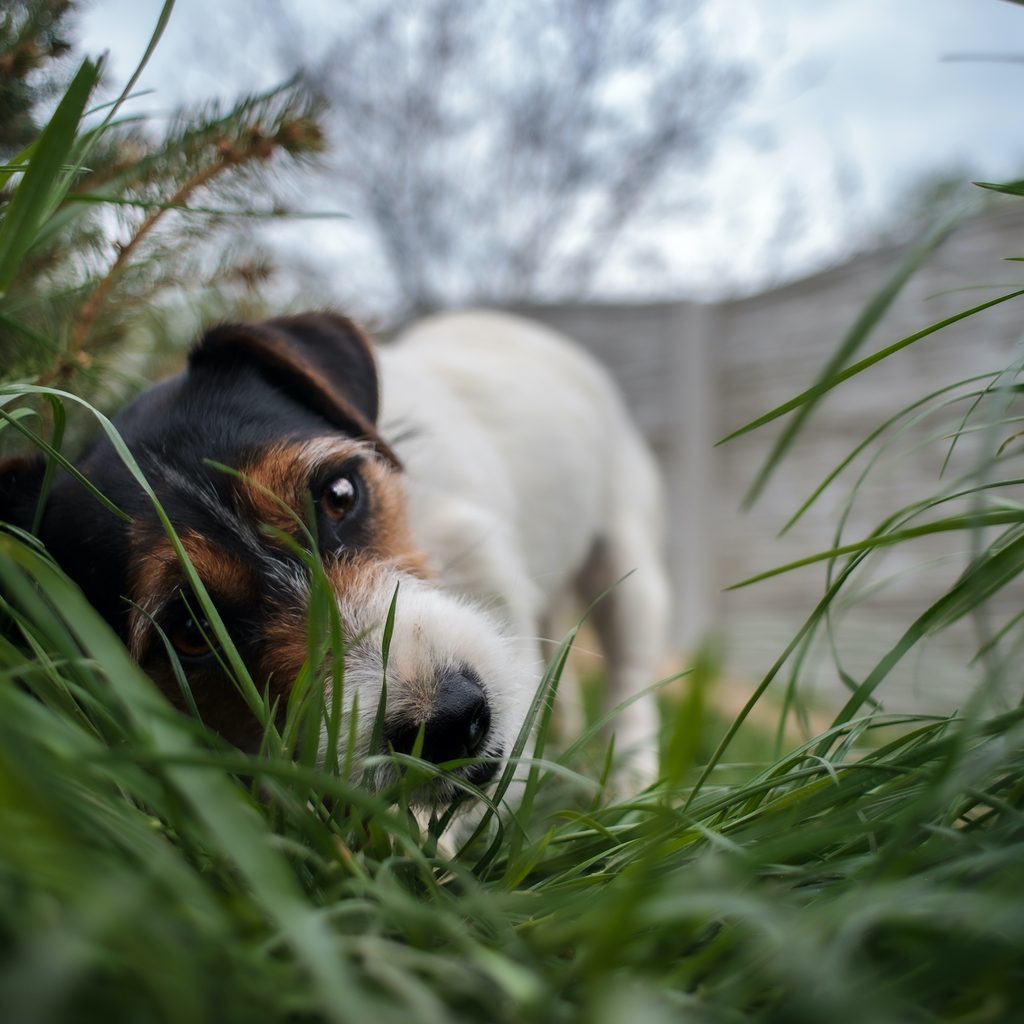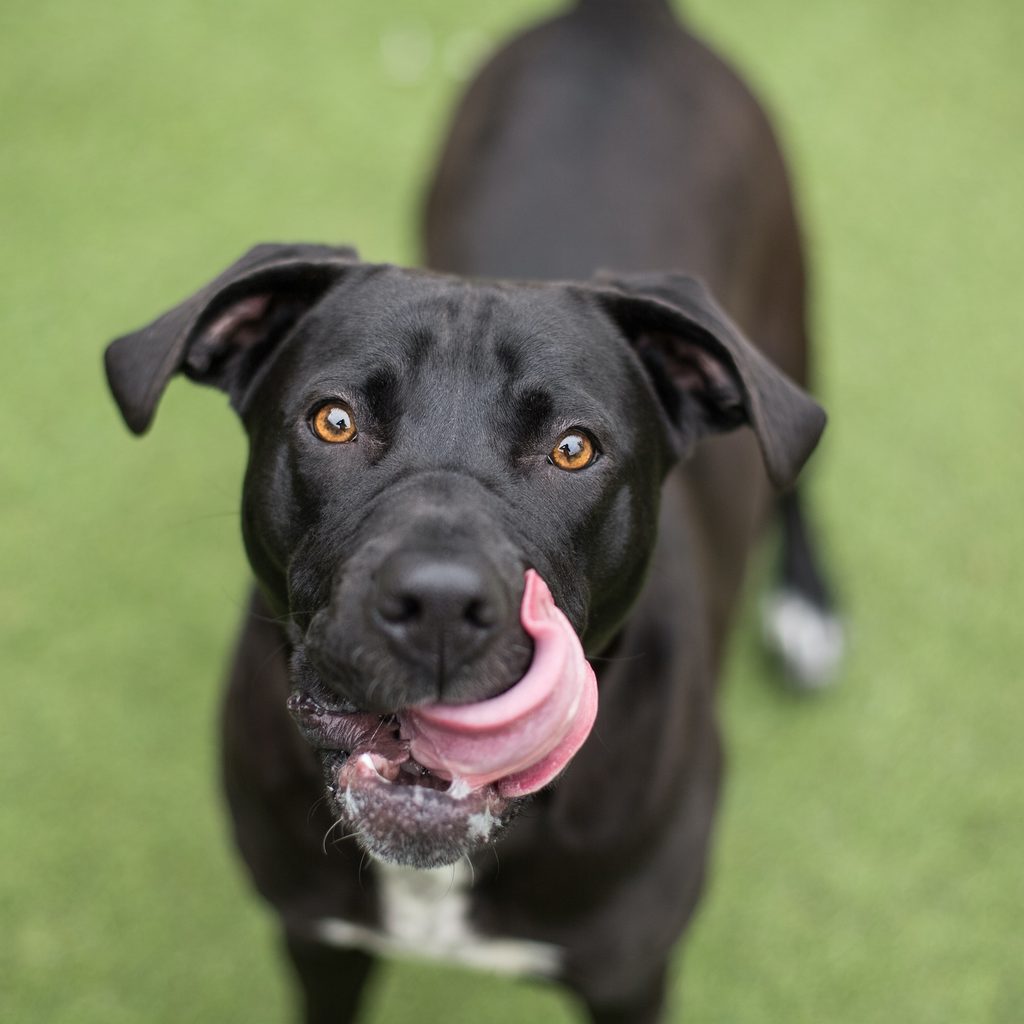Gross is gross – no matter how much you love your pup. From accidents to weird-smelling dog food, nothing tips the scale of disgusting quite like witnessing your dog eat poop… and then having to take it from their mouth. If you’re in public, like in a dog park or on a walking trail, it can be downright embarrassing too. So why do dogs eat poop anyway?
There are many reasons why your furry friend engages in this unpleasant habit, and it’s important to understand them if you want to stop your dog from becoming a repeat offender. Your local veterinarian can help you determine the cause of your pup’s stool-eating, and they can also recommend their favorite products and techniques to combat it. Until then, here’s what you need to know.
Why do dogs eat poop?
To truly understand this unique behavior, it’s important to look at it from a dog’s point of view. We’re different species, after all, so what’s disgusting to us may be completely normal to them.
1. Instinctual pack protection
The American Kennel Club notes that wild dogs would eat stools – both their own and each other’s – as a way of protecting pack members from parasites and illness. In fact, it can even protect the pack from predators, as many large animals can detect sick or weak prey just through the stool they find.
2. Consuming nutrients
Poop-eating, known clinically as coprophagia, may also be an instinctual attempt to consume essential nutrients in the wild. However, many domestic dogs still have this instinct, especially if they run into any dietary deficiencies or health concerns, according to Hudson Animal Hospital and the AKC such as:
- Stress
- Parasites
- Attention-seeking
- Nutritional deficiencies
- Cushing’s syndrome
- Malabsorption syndromes
- Diabetes
- Thyroid disease
- Medications
Ruling out the above causes is a great reason to visit the veterinarian’s office, especially if this is something new for your dog.
3. Confined spaces
Canines who have been kept in small spaces are also more likely to eat feces. Since dogs are den animals, notes the AKC, they have an instinct to keep their space as clean including poop-free as possible. Sometimes there’s only one way to make that happen in an especially confined space.
4. Learned behavior
For puppies, notes the AKC, this can simply be a learned behavior. It’s common for fecal scents to be present on the mother’s mouth – especially after grooming her pups – which can create an association for the puppies.

Is it harmful for dogs to eat poop?
As convenient as it would be, this question does not have a simple answer. It’s important to determine both whose feces are being eaten and why.
If your dog is snacking on their own stools, explains Hudson Animal Hospital, you don’t generally need to worry about illness. As gross and embarrassing as it may be, it will not put your dog’s health in jeopardy. If your pup is consuming the poop of other animals (even other dogs), however, they can be at risk for parasites, infections, and other health problems.
It’s also possible that your dog’s new habit stems from a physical or nutritional need. Your veterinarian can help you determine if your furry friend may be battling a problem you don’t yet know about.

How to discourage poop-eating
Whether or not you’re worried about your dog’s unpleasant behavior, it’s easy to see why you’d want to stop it. Fortunately, there are many ways to do this.
Supplements and products
Vitamin supplements – whether a multivitamin or specific nutrient – can be a helpful tool to prevent coprophagia. According to the AKC, your vet can pinpoint if your dog is missing something in their diet to find you the best product to end this habit. Vitamin B12 often works well for this. Similarly, enzyme supplements may help counteract the high-carbohydrate diet of modern canines. Papain in particular is helpful with canine digestion, and it’s easily found online or in pet stores.
There are also taste-deterrent products, such as Well & Good Coprophagia Chewable Tablets, that will discourage your dog from eating stools. To make it work, just feed your dog (or all dogs in a multi-dog household) the product and let it do its thing. It will make your pup’s stools taste, well, unpleasant, even to them, so they won’t want to keep snacking.
Behavioral and environmental changes
The most effective long-term solutions for coprophagia include training and environmental changes. For example, if your dog consumes feces while in a small space, consider finding a larger space for them – and include more potty breaks! The AKC recommends staying ahead of your dog and picking up any droppings as soon as you’re able.
Of course, nothing works its magic quite like obedience training. With some dedication, patience, and consistency, a simple “leave it” can stop your pup’s nasty habit cold. No matter why your dog eats poop, these changes can go a long way in making sure the behavior does not continue. You can thank us later!




